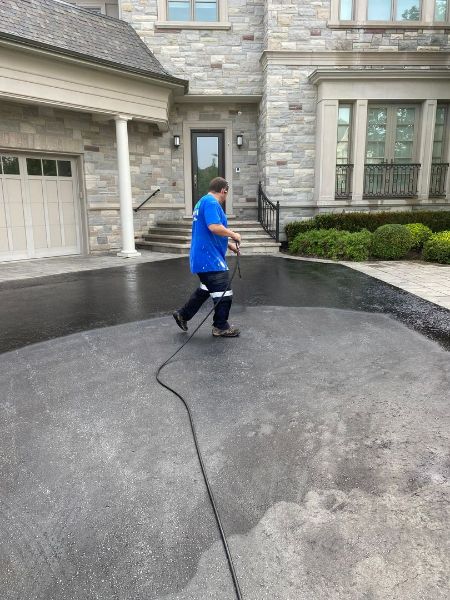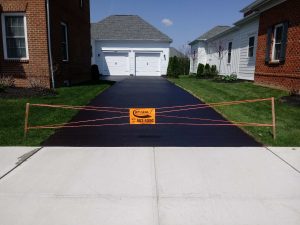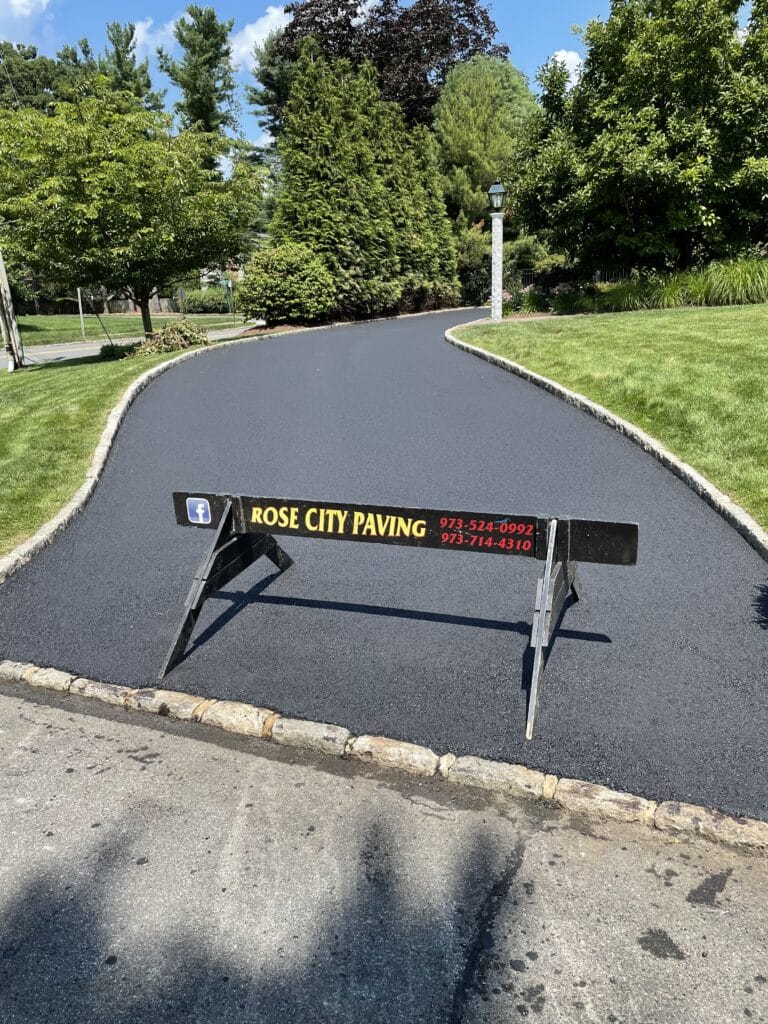Hot Mix Asphalt: A Sustainable Option for Pavement
Warm Mix Asphalt (HMA) has emerged as a leading sustainable choice for pavement remedies, using a myriad of ecological benefits and cutting-edge technologies. As the demand for environmentally friendly building and construction practices expands, discovering the nuances of HMA's sustainability can offer important insights into the future of sidewalk services.
Environmental Advantages of Hot Mix Asphalt

Furthermore, Hot Mix Asphalt aids to mitigate city warmth island effects. Its dark color takes in sunlight, lowering the amount of warmth mirrored back right into the atmosphere compared to lighter-colored pavements. This can lower ambient temperatures in metropolitan locations, lowering the demand for air conditioning and inevitably reducing energy intake.
On top of that, Hot Mix Asphalt adds to enhanced stormwater monitoring. Its porous nature permits water to penetrate the pavement and recharge groundwater supplies, lowering overflow and the threat of flooding. These ecological benefits make Hot Mix Asphalt a sustainable choice for leading roadways and highways.
Energy Effectiveness in HMA Manufacturing
Is power performance a vital consider the manufacturing of Hot Mix Asphalt (HMA)? Absolutely. Energy plays a considerable role in the manufacturing of HMA, affecting both price and environmental sustainability. One vital element of energy effectiveness in HMA production is making use of warm mix asphalt (WMA) modern technologies (hot mix asphalt). WMA allows for the mixing and positioning of asphalt at reduced temperature levels contrasted to conventional warm mix asphalt, resulting in decreased energy usage during manufacturing. This procedure not just reduces fuel usage but also reduces greenhouse gas emissions, making it a more ecologically friendly choice.
Additionally, innovations in plant modern technologies have actually led to even more energy-efficient HMA production processes. By optimizing energy use in HMA manufacturing, the industry can decrease its carbon impact while keeping top notch pavement materials.
Recyclability of Hot Mix Asphalt
The recyclability of Hot Mix Asphalt (HMA) is a critical facet of its sustainability and long-lasting ecological effect. HMA is among one of the most recycled products in the USA, with over 100 million lots of redeemed asphalt pavement (RAP) being reused every year in new sidewalk building. Recycling HMA supplies a number of environmental benefits, such as lowering the requirement for virgin products, lowering energy usage during manufacturing, and reducing the amount of waste sent to garbage dumps.
The procedure of recycling HMA involves milling the existing pavement, squashing it into smaller sized pieces, and blending it with new accumulation and asphalt binder to create a recycled mix. Generally, the recyclability of HMA plays a significant duty in advertising lasting practices within the pavement get redirected here industry.

Long-Term Performance of HMA
Asphalt sidewalks demonstrate resilience and strength over an extensive period, mirroring the long-term efficiency of Warm Mix Asphalt (HMA) The durability of HMA can be attributed to its ability to endure rush hour lots, extreme climate condition, and the effects of aging. Researches have shown that properly designed and properly built HMA pavements can last for 20 years or more with regular upkeep. The trick to making best use of the long-lasting efficiency of HMA hinges on making use of high-quality materials, adhering to ideal practices have a peek at this site in construction, and applying effective upkeep strategies. Correct drainage, regular examinations, and timely repairs are important for maintaining the structural honesty of HMA pavements over time. In addition, advancements in HMA technology, such as making use of polymer-modified binders and warm mix asphalt, have actually further enhanced the sturdiness and durability of HMA pavements. By check it out focusing on quality building and maintenance techniques, HMA remains to show itself as a cost-efficient and lasting remedy for durable sidewalk facilities.

HMA: Sturdiness and Sustainability
Demonstrating both durability and sustainability, Warm Mix Asphalt (HMA) has actually ended up being a cornerstone in the building of long-lasting sidewalk frameworks - hot mix asphalt. HMA's toughness stems from its capability to hold up against hefty tons, extreme climate condition, and high website traffic volumes, making it a trustworthy choice for streets, freeways, and flight terminal runways. The make-up of HMA, which usually includes accumulations, binder, and filler, plays a vital role in enhancing its longevity and resistance to tear and put on
In addition, HMA's sustainability depends on its recyclability and energy-efficient production process. The ability to reuse reclaimed asphalt pavement (RAP) in new HMA blends minimizes the demand for virgin products and reduces the environmental impact of sidewalk building and construction and maintenance. In addition, the energy effectiveness of generating HMA exists in its lower blending temperature levels compared to various other pavement materials, leading to lowered energy usage and greenhouse gas discharges.
Conclusion
In conclusion, hot mix asphalt (HMA) provides a lasting service for pavement with its ecologically pleasant characteristics. HMA's recyclability, power efficiency in manufacturing, and lasting longevity make it an environment-friendly selection for roadway construction.
HMA is one of the most recycled products in the United States, with over 100 million tons of reclaimed asphalt sidewalk (RAP) being recycled every year in new pavement building.The procedure of reusing HMA includes crushing the existing sidewalk, crushing it right into smaller sized items, and blending it with brand-new aggregate and asphalt binder to create a recycled mix.Asphalt pavements demonstrate resilience and durability over a prolonged period, mirroring the long-lasting efficiency of Warm Mix Asphalt (HMA) Additionally, advancements in HMA technology, such as the use of polymer-modified binders and cozy mix asphalt, have further improved the durability and durability of HMA pavements. The capability to reuse reclaimed asphalt pavement (RAP) in brand-new HMA mixes minimizes the demand for virgin products and reduces the ecological influence of sidewalk building and construction and upkeep.
Comments on “Renew Your Residential Or Commercial Property with Regrading and Asphalt Sealing Methods”